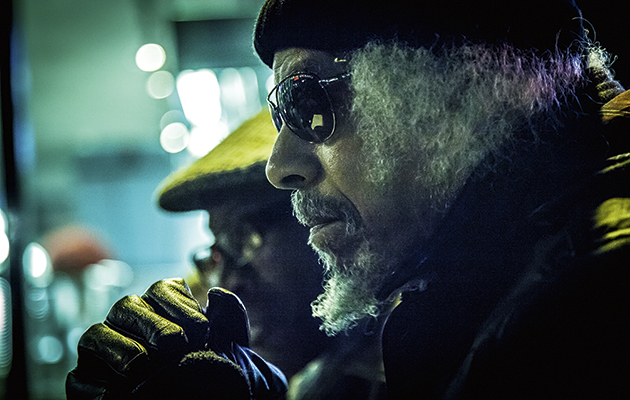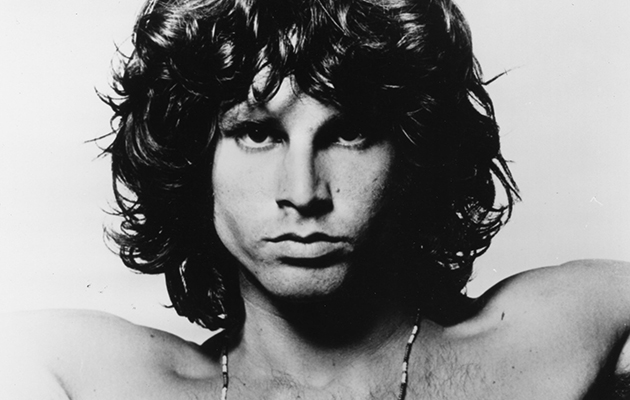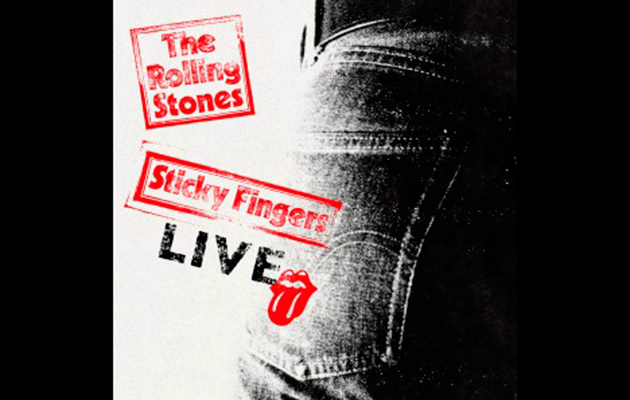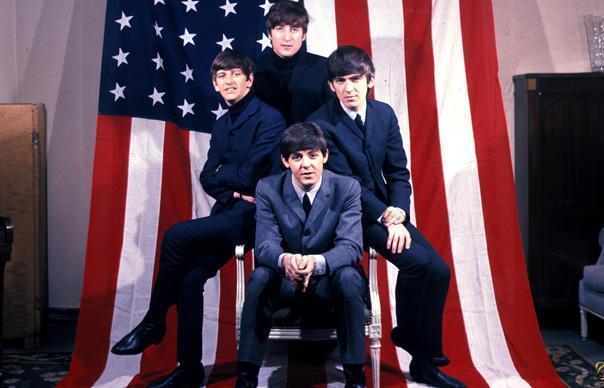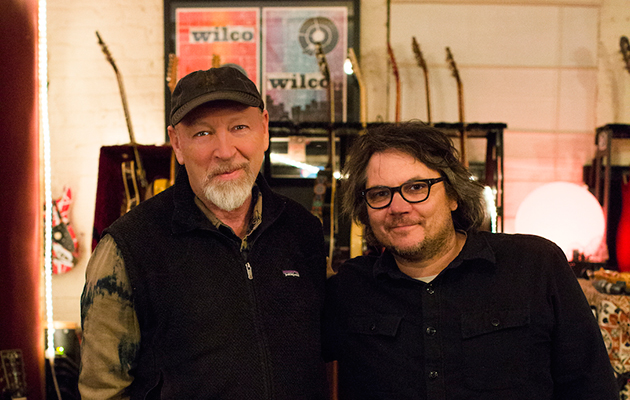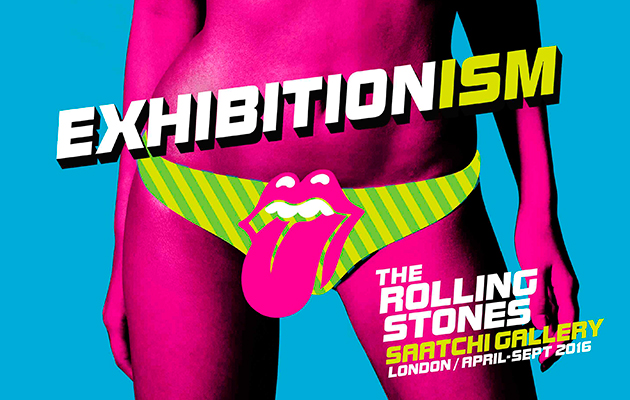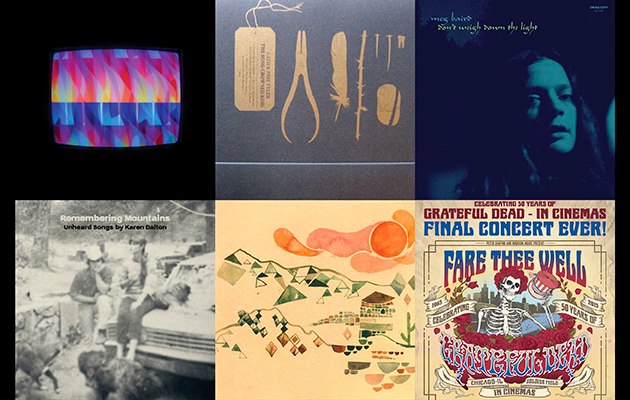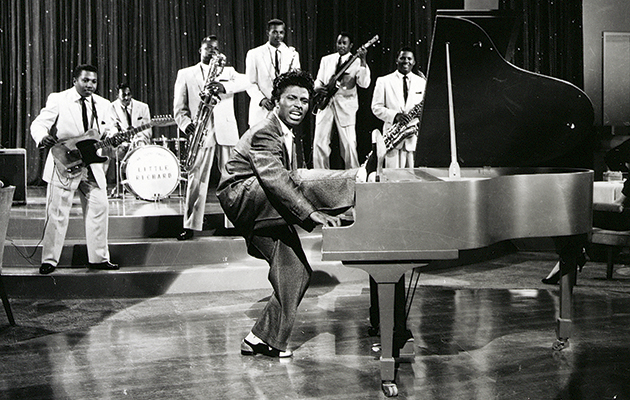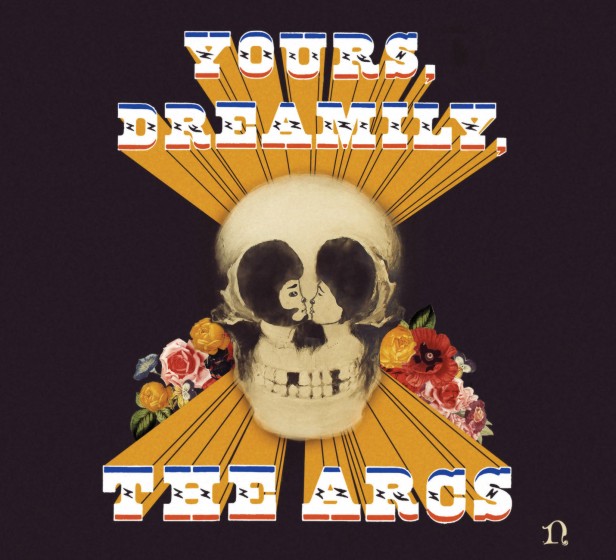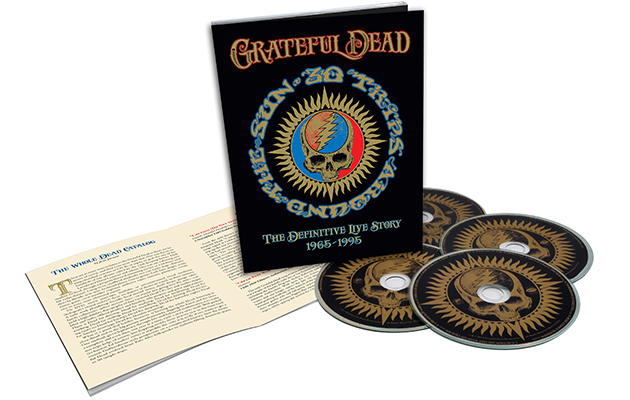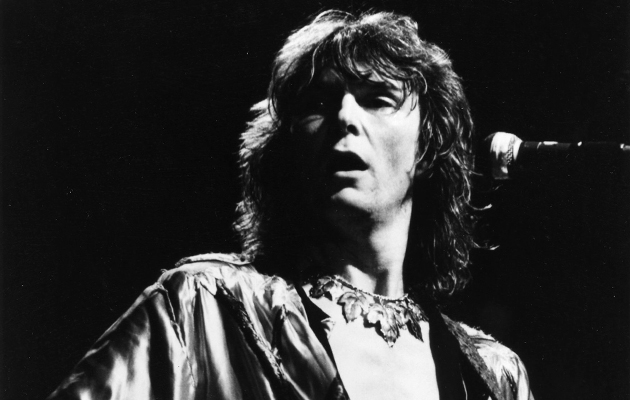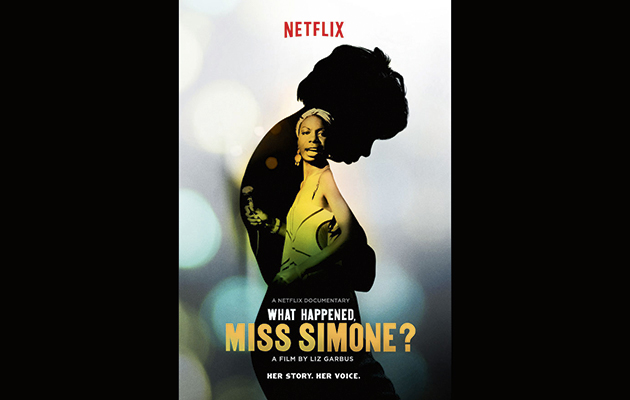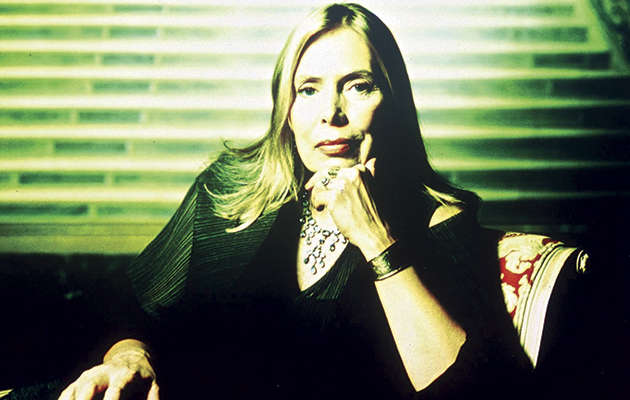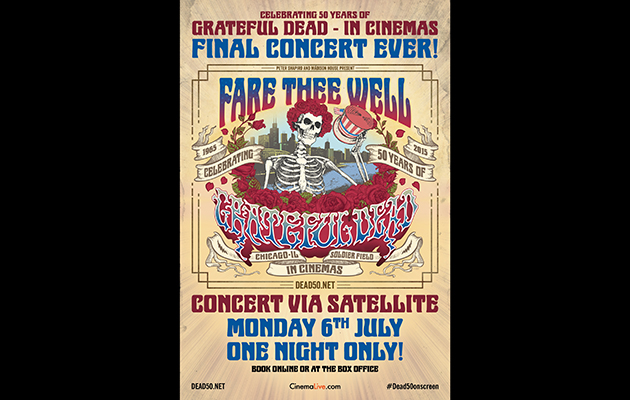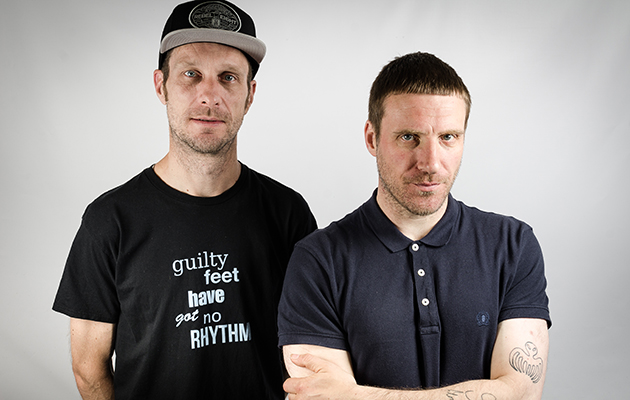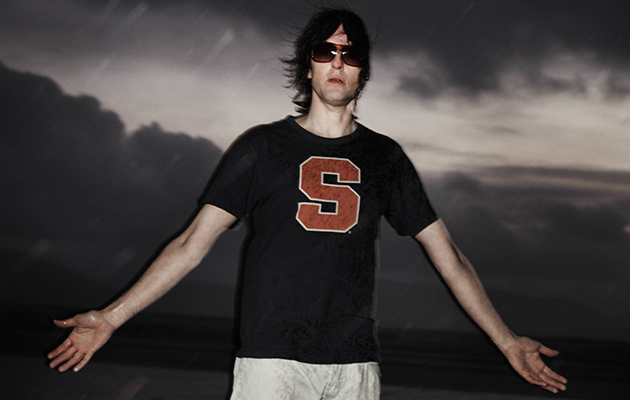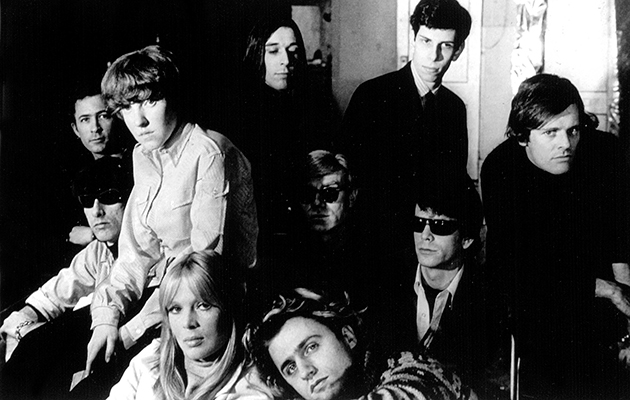“Beatnik Walking”, the second track on the new Richard Thompson album, is an affectionate little sketch which speaks volumes about its creator. As he tells Uncut, it documents a working trip to the Netherlands with his wife and baby son 22 years ago. Realising that none of the dates on his Dutch tour were more than two hours’ drive away, Thompson elected to stay in Amsterdam with his family, doing the Times crossword in the morning; seeing a few sights; eating in the same restaurant every lunchtime; and then setting out for the evening show. Excitement, but not more than he could handle. For someone of Thompson’s proclivities, it was a dream break.
The Fairport Convention founder’s 46-year year career has shown him to be a man of brilliant – if slightly conservative – habits. An unworldly frump in his folk-rock prime – check out the rugby shirt he wears on the back cover of his debut solo LP, 1972’s Henry The Human Fly – his scarily fluent guitar work influenced left-fielders like Television and Pere Ubu as much as it did folkies, but no amount of good press has ever given him the confidence to look life in the eye. In his beret or his baseball cap, the 66-year-old is still the living embodiment of awkwardness.
If the pre-release blurb was anything to go by, the aim for Still was to wrest Thompson out of his comfort zone. Recorded at Wilco‘s The Loft studio in Chicago, under the guidance of Jeff Tweedy, it might – if one believed such things were possible – have been the album when he cut loose and did something entirely out of character. It isn’t. For all the possibilities seemingly offered by working with an unfamiliar producer in a new studio, Still is almost relentlessly inward looking. It’s about repression; unexpressed and inexpressible emotions; characters who go nowhere; who sit tight on their desires; who keep their mouths – and on chastity belter “All Buttoned Up” their legs – shut.
Elegaic opener “She Never Could Resist A Winding Road” sets a curious tone; a fare-thee-well to a wandering spirit, who “never could stay any place too long, to not be standing still’s where she belongs”. Regular listeners will spot the parallel with “Beeswing“, the hybrid Anne Briggs/Vashti Bunyan portrait Thompson conjured up for 1994’s Mirror Blue – and behind the strathspey-like tangles of his guitar solo, one reads the unwritten story; the narrator’s yearning to follow his desires, the craving for the open road coupled with the overriding fear that something nasty might lie in wait around the corner.
The clip-clop rhythms of “Beatnik Walking” reinforce that sense that adventure might be something best taken in moderation, Thompson’s memoir of what he did on his holidays capturing a quietly luminous reverie, and standing up for the world’s silent types as he sings: “Dutch is not a loving tongue, you say your piece and run, you say you care in other ways.”
Showing you care, though, is not something that comes easy for the characters elsewhere on Still. The Miss Havisham spinster of the spooky “Josephine” sublimates her desires into scribbling on the wall as she waits in vain for the love of her life, while the protagonist in the leery “All Buttoned Up” clatters up against his girlfriend’s heavily fortified virtue, desperate to cop a feel, but mindful that he’s far too much of a good guy to try his luck. “I’ve got desires, raging fires, but I’ll do the right thing won’t I,” grunts Thompson, his strangulated whine of a guitar solo a fiery portrait of a libido straining under heavy manners.
That church mouse’s yearning to be a proper rat recurs; jealousy underpins hatred on the mark’s portrait of the sexy conman, “Long John Silver“, while the 80s smoove of “Where’s Your Heart?” (complete with faux-Prince harmonies) expresses the soft-bodied creature’s loathing and half-suppressed admiration for the hard-shelled. “Is it just yourself you’re enamoured of,” sings Thompson, an attempted put-down seemingly delivered by someone who dreams of loving themselves a little more.
Love, though, is not something Still’s dramatis personae can deal with. The dervish whirl of “Pony In The Stable” expresses that fear that passion and excitement might be too much to handle. “You’re messing with my mind, you’re thrilling me but killing me,” stammers Thompson, the accompanying car-alarm guitar wails subtitling the anxiety at its core.
Emotionally, the centre of Still might be the anguished “Dungeons For Eyes“, Thompson’s account of meeting a genuine baddie – a killer turned politician – at a social engagement. “Am I supposed to love him, am I supposed to shake his hand,” Thompson wonders, suddenly confronted with the banality of evil, but as powerful as his sense of repulsion is, what seems to horrify Thompson more is that – given the opportunity to right wrongs, even to speak his mind – he does nothing. “I can’t forgive you, I can’t forgive me,” he mutters over a rising cacophony.
Inertia, though, comes naturally to him, making closer “Guitar Heroes” – Thompson’s affectionate portrait of the fretmasters who bewitched him as a child – oddly revealing. The mini-Thompson blocks out the world to try and emulate his idols, with parents, school, girlfriends (“she says there’s normal boys out there”) all waved away as he pursues his mission to make a tiny corner of a big, intimidating universe absolutely his own. It’s gauche and funny, but the underlying joylessness emerges in a crushing crescendo: “Well I played and played until my fingers bled, I shut out all the voices but the voice in my head, now I stand on the stage and I do my stuff, and maybe it’s good but it’s never good enough.”
Whether that’s how Thompson genuinely feels about his work is a moot point; disentangling fact from fiction in his songs is an untidy business. However, it says something about the kind of determination that keeps him interesting; the producers, the backing bands, the studios, change, but the songs fundamentally do not. Tightly wound – easygoing but uptight; the work of a man still striving for a modest kind of perfection. And – not for the first time – with Still he has almost achieved it.
Q&A
RICHARD THOMPSON
You made Still in Wilco’s studio in Chicago in just nine days; do you like to make records quickly?
I never seem to have time to be a slow ponderer – it might be nice occasionally to have that luxury. We had a very small window to make this record in between my schedule and Jeff’s schedule. We did a thing called the AmericanaramA tour, which was a sort of travelling festival, and we spent time together, so the idea slowly formed that it might be nice to ask Jeff to produce a record. I’ve been making records for a long time and I know how to do it a certain way, but it can get a little stale, so it can be nice to get new people to come in and challenge you a bit.
“She Never Could Resist A Winding Road” is lovely; do you like the idea of escaping?
I wrote it about somebody else, but often you write a song and come back to it a bit later and think: ‘That’s about me.’ I suppose I like the idea of winding roads because you can’t see round the corner which is always a very seductive thing. And I suppose that’s a nice way to think about life – you’re on this journey, and the road winds, and you never quite know what’s coming.
“Beatnik Walking” is a walking tour of Amsterdam, correct?
It’s about a tour I did of Holland about 22 years ago with a new son, who was about six months old and in a backpack on my back. It was kind of an idyllic three weeks and I wanted to express it in a song. It’s probably the first time I have mentioned Rupert Murdoch in a song and hopefully the last. I have been addict of the Times crossword since I was 16, and it was nice to get the paper in the morning in Amsterdam, even though it’s owned by Murdoch. The song is full of all these little personal references which I shouldn’t be telling you about. If I tell you any more, I’d have to kill you.
Were you ever a beatnik?
I am a beatnik! My sister was an absolute beatnik for about a year – she spent a whole year without shoes, smoking Gauloises and hanging out in cafes, but then something else became fashionable. I always thought it was a very attractive lifestyle; slightly outside of society; a lot of poetry and jazz involved, and you can wear a fairly disheveled form of dress 24 hours a day. You can grow a beard!
“All Buttoned Up” seems to reflect the morality of the 1950s; do you remember that as an uptight era?
The 50s was a pretty oppressive time to grow up – humour became a very important way to deflect all that. Without the Beano comic, the Goon Show and Around the Horn – which gave you permission to be irreverent – I think we would have died of suffocation.
You have lived in California for decades, but are the characters in your songs still in the UK?
As a general thing they are. I am better at doing British than American. I am really nostalgic for industrial Britain: factories, tall industrial chimneys, and it really was dirty – you had to seriously work hard to get your shirts clean because you lived in London. I miss it – but it’s not there anymore.
“Guitar Heroes” celebrates Django Reinhardt, Les Paul, Chuck Berry, James Burton and the Shadows; why is that music so important to you?
It was the stuff that was thrown at me, really – it was the hand I was dealt. I’m a kid of the 50s – my dad had got some good records, Django Reinhardt and Les Paul, but at the same time rock’n’roll was hitting, and the hip stuff, the sexy stuff, was guys with guitars: Buddy Holly, Scotty Moore. What came before Elvis – I mean, “How Much Is That Doggie In The Window”, cloying novelty records, very schmaltzy dance music – was too sentimental, too suffocating for the post-war generation. Rock’n’roll was all about rawness and energy, throwing off the layers of sentiment and sophistication and returning to something a bit more earthy.
You are quite dismissive of a lot of your past albums; are you a harsh judge of your own work?
I don’t think you have to be a perfectionist to be unsatisfied with what you do. I really do think I do some good stuff – I have a certain amount of self-belief, but I know I am capable of being mediocre as well. It’s something you have to ask yourself all the time: how am I doing? I am not good at being commercial; I am not good at being Brian Wilson or the Travelling Wilburys.
INTERVIEW: JIM WIRTH
The History Of Rock – a brand new monthly magazine from the makers of Uncut – goes on sale in the UK on July 9. Click here for more details.
The August 2015 issue of Uncut is in shops now – featuring David Byrne, Sly & The Family Stone, BB King and the death of the blues, The Monkees, Neil Young, Merle Haggard, the Only Ones, Flying Saucer Attack, Ezra Furman and more.
Uncut: the spiritual home of great rock music.


